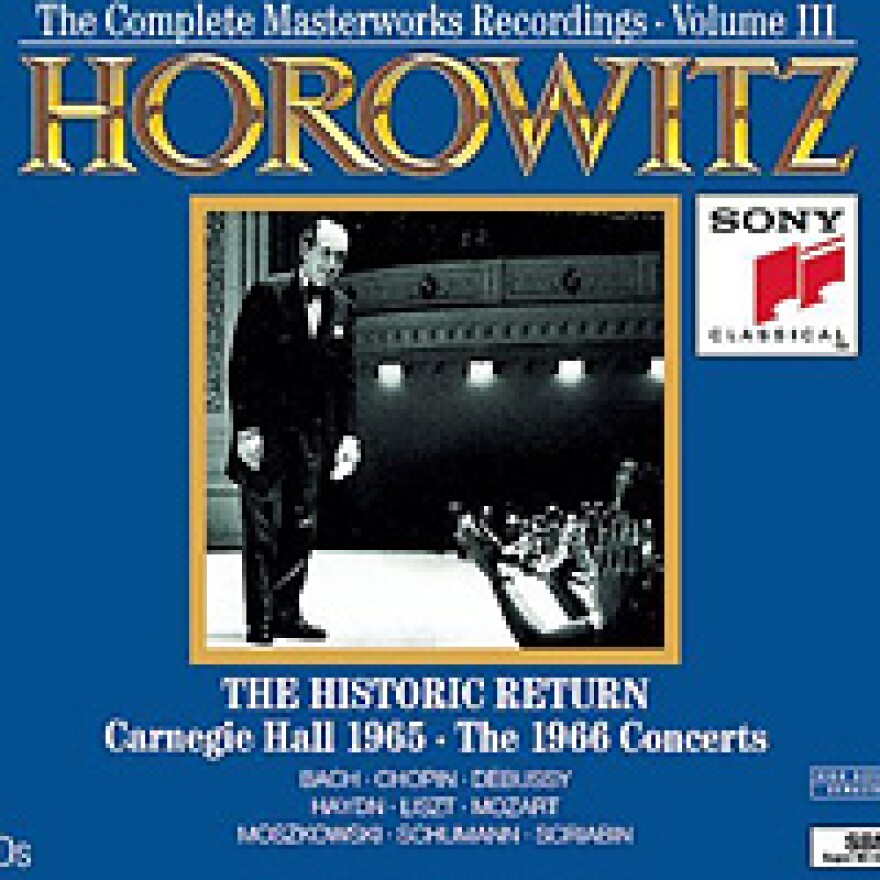
After a self-imposed 12-year exile from public performance, pianist Vladimir Horowitz, at age 62, returned to the stage for a performance at Carnegie Hall on May 9, 1965. It was an important event: This titanic figure of the keyboard had been away for so long that everyone wanted to know, "Did he still have it?"
By the time he turned 40, Horowitz was a legend. Sergei Rachmaninoff called him the greatest pianist of the 20th century. Horowitz had conquered Europe and then America, setting the standard of contemporary virtuosity — he defined it, and for better or worse, that was what people wanted to hear.
Horowitz had an enormous range of tone and incredible charisma. Even when his playing wasn't note-perfect, it didn't matter, because listeners were totally swept up by the experience. He had the ability to bring a gigantic sound and lapidary beauty together in one performance. In this concert, it's easy to hear how he toys with the music, such as the Etude by Moszkowski, and he achieves as much through gentleness and an almost laughable ease as he does through anything that would be considered technically overwhelming.
The Dramatic Side
In addition to having the tremendous ability to toss off an encore like the Moszkowski, with all of its difficult scale passages, Horowitz could also generate a great deal of excitement and tension over the span of a larger piece, and he did that in concertos. He ruled the roost when it came to Tchaikovsky's Concerto, the Beethoven "Emperor" and Rachmaninoff's Third. But he also did it in single-movement pieces like those of Chopin, whose Ballade in G minor was the final work of the program on May 9, 1965. You really couldn't ask for a better work to bring down the official curtain on this concert. This was the way Horowitz wanted the audience to hear him at his best, at the end of the program. It's a titanic, gripping account of the music.
To hear last week's feature, click here.
For a full archive of NPR's Classical 50, click here.
Copyright 2023 NPR. To see more, visit https://www.npr.org.


